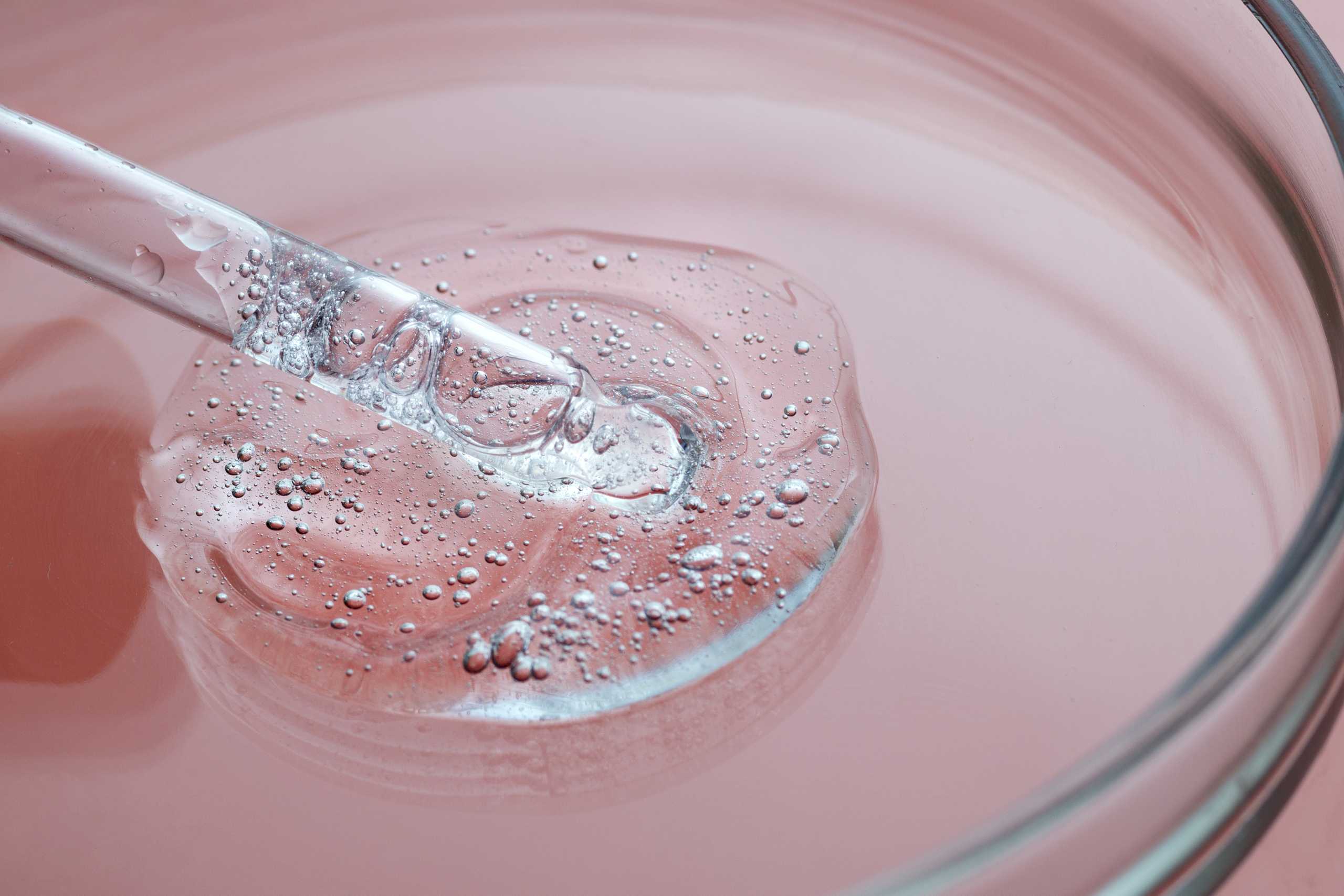Consideration #1: Material Selection
Sustainable wet wipes manufacture starts with choosing the right materials. Conventional wet wipes often use synthetic fibers such as polyester and polypropylene, which come from non-renewable sources and may remain in the environment for hundreds of years. As environmental awareness increases, there is a trend towards using more environmentally friendly options.
- Biodegradable and Compostable Fibers:
Choosing biodegradable or compostable fibers is a crucial move towards sustainability. Bamboo, plant-based cellulose, and sustainably obtained wood pulp are potential alternatives to traditional synthetic materials. Natural fibers may decompose into innocuous substances when subjected to microbial activity, which helps reduce the environmental impact of disposal. - Benefits of Natural Fibers:
Natural fibers provide environmental benefits in the long run and provide extra advantages. They are naturally soft on the skin, which makes them perfect for those with sensitive skin. Furthermore, their ability to be replenished assures a sustainable supply chain, which encourages environmental responsibility and bolsters local economies. - Performance and Quality Considerations:
Emphasizing sustainability is important, but it is as vital to maintaining the desired performance and quality of wet wipes. Biodegradable and compostable fibers function similarly to synthetic fibers. Their exceptional absorbency, strength, and softness guarantee a top-notch user experience without sacrificing efficacy. - Certifications and Standards:
When choosing materials for wet wipes manufacture, it is crucial to focus on certifications and standards that confirm their environmentally beneficial qualities. Seek certifications like the Forest Stewardship Council (FSC) for sustainably sourced wood pulp or the Biodegradable Products Institute (BPI) accreditation for biodegradable products. These certifications guarantee that the products you choose adhere to strict environmental and ethical criteria.
Opting for biodegradable and compostable fibers in wet wipes production reduces environmental harm and demonstrates a commitment to sustainability. As more people value eco-friendly goods, using sustainable materials is crucial for improving brand image, appealing to discerning consumers, and promoting a more environmentally friendly future.
Consideration #2: Energy-Efficient Production
Energy efficiency is a fundamental aspect of sustainable wet wipes production, providing many advantages such as cost reduction and environmental preservation. Wet wipes manufacturers may decrease their carbon footprint and improve operational efficiency by reducing energy use throughout the wet wipes manufacturing process.
- Investment in Advanced Machinery:
Investing in sophisticated machinery, such as wet wipes machines with energy-saving features, is a key step towards energy-efficient manufacturing. These machines use state-of-the-art technologies to reduce energy usage while maintaining high performance. Variable speed drives, regenerative braking systems, and automated shut-off mechanisms are used to efficiently manage energy consumption throughout the production process. - Utilization of Renewable Energy Sources:
Integration of renewable energy sources into the manufacturing plant improves energy efficiency and sustainability, in addition to modernizing gear. Solar panels, wind turbines, and biomass systems are feasible choices for producing clean energy on-site, decreasing dependence on fossil fuels, and alleviating greenhouse gas emissions. Wet wipes manufacturers may reduce their environmental effects and protect their operations from changing energy prices and regulations by using renewable energy sources. - Optimization of Production Processes:
Optimizing industrial processes is a crucial method for enhancing energy efficiency. Wet wipes manufacturers may decrease energy usage and increase productivity by finding and removing inefficiencies. Utilizing methods like lean manufacturing, process automation, and real-time monitoring allows for ongoing improvement and efficient use of resources, leading to substantial energy conservation in the long run. - Employee Training and Engagement:
Providing staff with the necessary information and skills to recognize energy-saving possibilities is crucial for promoting a sustainable culture inside the firm. Training programs that concentrate on energy conservation measures, equipment optimization, and waste reduction encourage employees to actively participate in energy efficiency projects. Encouraging environmental responsibility culture promotes employee engagement and instills pride in contributing to beneficial environmental results. - Monitoring and Measurement:
Consistent monitoring and measuring energy use are essential for pinpointing areas for improvement and monitoring advancements toward energy efficiency objectives. By implementing energy management systems and performing energy audits, wet wipes manufacturers may identify energy-intensive processes, discover energy-saving potential, and execute specific interventions. MWet wipes manufacturers may enhance sustainability performance by consistently monitoring performance parameters and comparing them to industry standards to optimize energy use and promote ongoing development.
Energy-efficient production is an important component of sustainable wet wipes manufacturing, providing clear advantages for both the environment and financial performance. Wet wipes manufacturers may reduce their environmental impact and improve operational efficiency and competitiveness by investing in innovative technology, using renewable energy sources, optimizing wet wipes manufacturing processes, and promoting employee participation. Embracing energy efficiency is crucial for driving innovation, cutting costs, and positioning firms for long-term success in a continuously changing market.
Consideration #3: Water Conservation
Water is a crucial resource necessary for producing wet wipes, but its supply is at risk due to factors including climate change and population expansion. Given these problems, water conservation is now a crucial focus for firms aiming to reduce their environmental impact and maintain sustainable operations.
- Efficient Water Management Practices:
Efficient water management procedures are crucial for decreasing water use and reducing waste in the production of wet wipes. This involves maximizing water efficiency from the first stages of raw material preparation to the last step of product packaging in the wet wipes manufacturing process. Closed-loop systems, which cycle water throughout the production plant, are techniques that limit water loss and assure effective use of this resource. - Investment in Water-Saving Technologies:
Investing in water-saving technology is an efficient technique for lowering water use in wet wipes production. State-of-the-art wet wipes machinery with water-saving components like low-flow nozzles and automatic water recycling systems allow producers to reduce water consumption while maintaining product quality and effectiveness. Moreover, using advanced water treatment methods like reverse osmosis and membrane filtering enables industries to recycle wastewater, therefore aiding in water conservation and minimizing environmental harm. - Alternative Wetting Methods:
Exploring alternate wetting processes is a way to save water in wet wipes production. Conventional wetting techniques often need a large amount of water, however using alternate methods like dry-wipe saturation or pre-moistened wipes may greatly decrease water use without compromising product quality. Wet wipes manufacturers may reduce their water use and support sustainable water management by reconsidering wetting procedures and investigating new alternatives. - Continuous Improvement and Optimization:
Continuous improvement and optimization are crucial for reaching long-term water conservation objectives in wet wipes production. Consistent monitoring and analysis of water use data help wet wipes manufacturers uncover inefficiencies, locate areas for improvement, and execute specific actions to decrease water consumption. Wet wipes manufacturers may make significant advancements in sustainable water management and conservation by promoting innovation and ongoing development within their culture. - Collaboration and Stakeholder Engagement:
Collaborating with business partners, government agencies, and stakeholders is crucial for promoting water conservation in wet wipes production. Wet wipes manufacturers may enhance their influence and promote widespread change in the sector by exchanging best practices, engaging in research and development projects, and supporting policy changes. Engaging with local people and stakeholders is essential for building trust, fostering goodwill, and ensuring that water conservation measures are in line with wider sustainability goals.
Water conservation is an urgent issue that requires joint effort and dedication from all parties engaged in wet wipes production. Wet wipes manufacturers can reduce their environmental impact, conserve water resources, and promote sustainability by adopting effective water management practices, investing in water-saving technologies, exploring alternative wetting methods, and encouraging continuous improvement and collaboration. Embracing water conservation is a chance to promote innovation, improve operational efficiency, and showcase environmental leadership in a fast-evolving world.
Consideration #4: Chemical Reduction
Chemical reduction is crucial for sustainable wet wipes production since it significantly affects the environment and human health. Traditional wet wipes sometimes include chemical additives like preservatives, perfumes, and disinfectants that may be harmful to both consumers and the environment. Wet wipes manufacturers may build safer and more ecologically friendly goods by focusing on reducing and eliminating dangerous substances.
- Natural and Biodegradable Ingredients:
Substituting synthetic chemicals with natural and biodegradable substances is one method for reducing chemical use. Ingredients sourced from renewable resources, such as plant-based surfactants and essential oils, provide efficient substitutes for conventional chemical additions. These substances are not only safer for human health and the environment, but they also biodegrade more easily, lessening the long-term influence on ecosystems. - Minimization of Preservatives and Additives:
Reducing the usage of preservatives and chemicals in wet wipes is important for improving shelf life and performance. Excessive use of these chemicals may lead to environmental contamination and pose health hazards, especially for persons with sensitive skin or allergies. Wet wipes manufacturers may make safer and kinder goods by reducing the use of preservatives and chemicals and choosing natural alternatives, all without sacrificing effectiveness. - Third-Party Certifications and Standards:
Third-party certifications and standards are essential for guaranteeing the safety and environmental sustainability of wet wipes compositions. Certifications like the Environmental Protection Agency’s Safer Choice program and the European Ecolabel validate items that fulfill strict standards for chemical safety and environmental performance. Wet wipes manufacturers may demonstrate their dedication to reducing chemicals and protecting the environment by obtaining certification for their goods. - Transparency and Ingredient Disclosure:
Transparency and ingredient disclosure are crucial aspects of chemical reduction initiatives in the production of wet wipes. Offering detailed and thorough ingredient lists empowers customers to make educated decisions about the goods they choose and helps them steer clear of potentially hazardous compounds. Wet wipes manufacturers may establish confidence with customers and showcase their dedication to product safety and environmental responsibility by being transparent and voluntarily sharing details about ingredients. - Continuous Innovation and Improvement:
Continuous innovation and development are essential for progressing chemical reduction efforts in wet wipes production. Wet wipes manufacturers may reduce the need for dangerous chemicals by investing in research and development to discover and implement breakthrough technologies and formulas. Partnering with businesses, academia, and research institutions may expedite advancements in developing safer and more sustainable wet wipes compositions.
Chemical reduction is crucial for sustainable wet wipes production, impacting human health and environmental sustainability. Wet wipes manufacturers can create safer, healthier, and more environmentally friendly products by focusing on natural and biodegradable ingredients, reducing preservatives and additives, obtaining third-party certifications, promoting transparency, and encouraging continuous innovation and improvement. Chemical reduction is about meeting regulations and advancing a healthier and more sustainable future for future generations.
Consideration #5: Packaging Innovation
Packaging innovation is crucial in sustainable wet wipes production, providing ways to decrease waste, lower environmental effects, and improve brand sustainability. With rising consumer awareness of environmental concerns, there is a growing need for eco-friendly packaging options that focus on recyclability, biodegradability, and resource efficiency.
- Recyclable Materials:
A key goal of packaging innovation is to shift from conventional single-use plastics to materials that can be recycled. Plastics like PET and HDPE, together with paper-based materials such as cardboard and paperboard, provide feasible options that may be readily recycled and reused. Wet wipes manufacturers may reduce the environmental effects of their goods and support the circular economy by using recyclable packaging materials. - Biodegradable and Compostable Packaging:
Biodegradable and compostable packaging are creative solutions that help reduce waste and environmental effects. Bioplastics made from renewable sources such as cornstarch or sugarcane provide biodegradable options compared to conventional plastics. Compostable materials decompose into organic matter in regulated environments, lessening the strain on landfills and lowering environmental pollution. - Minimalist Design and Lightweighting:
Embracing minimalist design concepts and lightweight methods is crucial for maximizing package efficiency and lowering material use. Optimizing package design by removing unneeded components and lowering extra material helps reduce waste, slash shipping costs, and decrease carbon emissions. Wet wipes manufacturers may improve resource efficiency and decrease their environmental impact by focusing on lightweight and compact packing options. - Refillable and Reusable Packaging:
Refillable and reusable packaging provides a creative alternative to traditional single-use packaging. Refillable wet wipes dispensers and reusable storage containers enable users to buy wipes in large quantities and replenish them as necessary, therefore decreasing packaging waste and encouraging resource conservation. Wet wipes manufacturers may improve customer convenience and reduce environmental impact by using refillable and reusable packaging options. - Innovative Dispensing Systems:
Innovative dispensing methods are a cutting-edge aspect of packaging innovation in the production of wet wipes. Automated dispensers, portion control systems, and single-sheet dispensing devices minimize product waste and improve user experience and convenience. Wet wipes manufacturers may reduce overuse, prolong product longevity, and enhance resource efficiency by improving dispensing systems. - Consumer Education and Engagement:
Consumer education and participation are crucial for promoting the use of sustainable packaging options. By clearly explaining the environmental advantages of eco-friendly packaging, supporting correct disposal methods, and encouraging recycling and composting programs, customers are empowered to make educated decisions and contribute to environmental conservation. Wet wipes manufacturers may enhance brand loyalty and support a sustainable future by promoting sustainability and environmental responsibility.
Pioneering packaging techniques play a crucial role in promoting sustainability in the production of wet wipes by providing chances to decrease waste, lower environmental footprint, and boost brand reputation. Wet wipes manufacturers can develop environmentally responsible products by utilizing recyclable materials, biodegradable and compostable packaging, minimalist design principles, refillable and reusable packaging solutions, innovative dispensing systems, and consumer education initiatives. Packaging innovation serves to safeguard goods and preserve the environment and provide a more promising future for future generations.
Consideration #6: Consumer Education
Consumer education is crucial for sustainable wet wipes production since it enables people to make educated decisions that are in line with their beliefs and support beneficial environmental results. Wet wipes manufacturers may encourage customers to adopt more sustainable habits and support environmentally friendly goods by offering transparent information on product sustainability, environmental effects, and correct use and disposal practices.
- Understanding Environmental Impact:
Consumer education aims to raise awareness of the environmental effects of wet wipes and the significance of sustainability in production methods. Wet wipes manufacturers should raise awareness among customers about the whole lifespan of wet wipes, including production, consumption, and disposal, to emphasize the environmental impact of conventional manufacturing practices and encourage people to look for more eco-friendly options. - Encouraging Sustainable Practices:
Consumer education is essential for encouraging sustainable use and disposal practices of wet wipes. Offering precise guidelines for correct use, such as limiting consumption and properly disposing of wipes, aids in waste reduction and environmental pollution prevention. Encouraging customers to choose eco-friendly options like biodegradable or compostable wipes allows them to make decisions that support their beliefs and help create a healthier world. - Promoting Sustainable Practices:
Transparency and ingredient disclosure are crucial aspects of consumer education in the development of wet wipes. Offering detailed and thorough information on product components, including any possible environmental or health risks, empowers customers to make educated decisions about the goods they choose. Wet wipes manufacturers may establish confidence with customers and showcase their dedication to product safety and environmental responsibility by being transparent and voluntarily sharing details about ingredients. - Promoting a Culture of Sustainability: Consumer education efforts also seek to promote a culture of sustainability and environmental responsibility among consumers. Wet wipes manufacturers may encourage people to prioritize environmental conservation and resource efficiency by emphasizing the advantages of sustainable goods and activities. Collaborating with environmental organizations, community groups, and educational institutions may enhance the effectiveness of consumer education initiatives and promote significant social change.
Consumer education aims to enable people to make well-informed decisions that are in line with their beliefs and promote beneficial environmental results. Wet wipes manufacturers may empower customers to become agents of change and champions for a healthy world by offering accessible information, advocating sustainable practices, fostering transparency, and cultivating a culture of sustainability. By combining education and community action, we can establish a more sustainable future for future generations.







